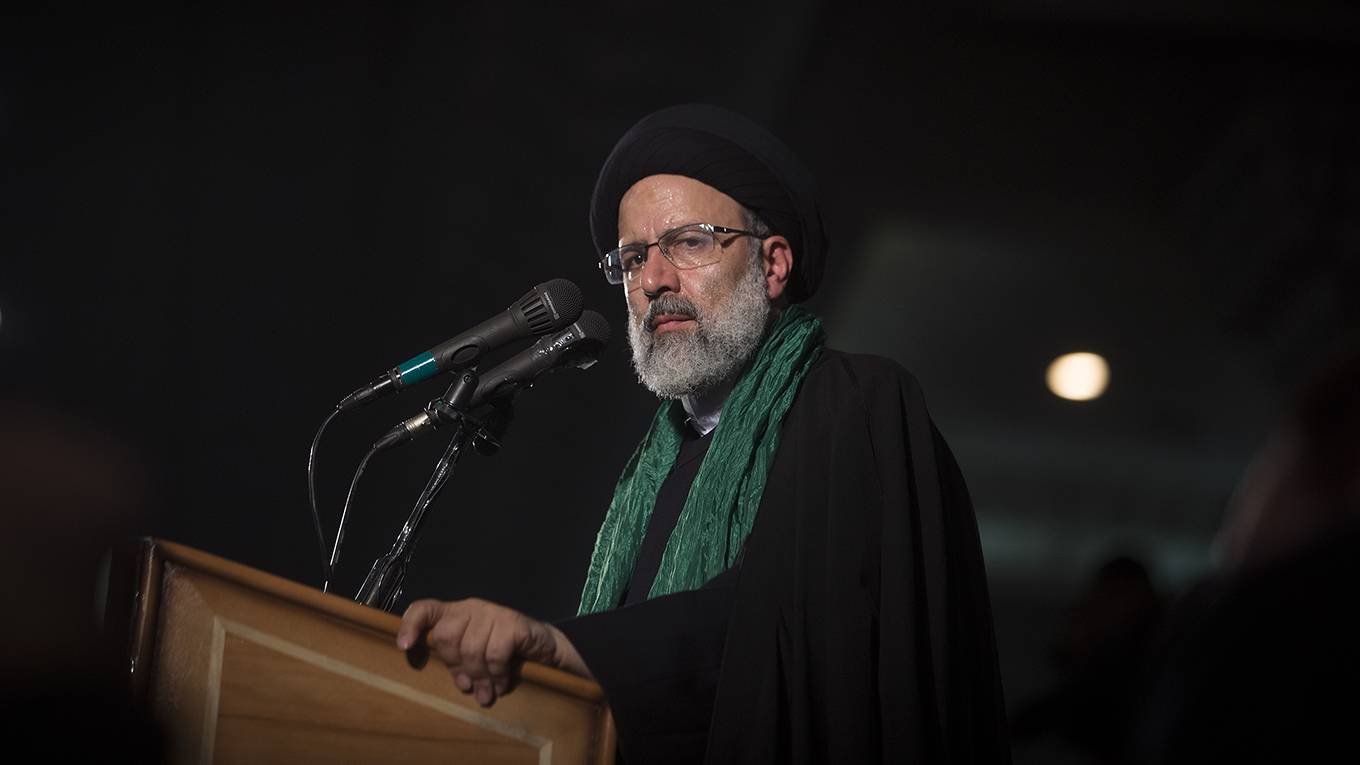ABBAS MILANI

PALO ALTO – Iran’s presidential election on June 18 was the most farcical in the history of the Islamic regime – even more so than the 2009 election, often called an “electoral coup.” It was less an election than a chronicle of a death foretold – the death of what little remained of the constitution’s republican principles. But, in addition to being the most farcical, the election may be the Islamic Republic’s most consequential.
The winner, Sayyid Ebrahim Raisi, is credibly accused of crimes against humanity for his role in killing some 4,000 dissidents three decades ago. Amnesty International has already called for him to be investigated for these crimes. Asked about the accusation, the new president-elect replied in a way that would have made even George Orwell blush, insisting that he should be praised for his defense of human rights in those murders.
Never has such a motley crew been chosen to act as a foil for its favored candidate. The regime mobilized all of its forces to ensure a big turnout for Raisi, who until the election was Iran’s chief justice. Supreme Leader Ayatollah Ali Khamenei decreed voting a religious duty, and casting a blank ballot a sin, while his clerical allies condemned advocates of a boycott as heretics. But even according to the official results, 51% of eligible voters did not vote, and of those who did, more than four million cast a blank ballot. There are already allegations that the announced numbers were doctored, and a powerful movement to boycott the election has already declared the outcome a virtual referendum against the status quo.
Despite the constitution’s republican elements, real power has always been in the hands of the Supreme Leader. Since the 1979 Islamic Revolution, virtually all elections – except those in the first couple of years – were to varying degrees engineered. The Islamic Republic has always been closer to a traditional Islamic state than a modern republic. But after Raisi’s election, it will be a stretch to call Iran even a competitive authoritarian regime where factions compete in managed elections to divide power.
This election was not just about the presidency, but also about the selection of the next Supreme Leader. Khamenei is 82, and has long been battling prostate cancer. Some believe the plan is to anoint Khamenei’s son, Mojtaba, as the next Supreme Leader, making the post hereditary (and moving Iran closer to becoming a caliphate). In this scenario, Raisi is to be the pliant president who enables Mojtaba’s rise. But others think that Raisi himself is Khamenei’s designated successor.
Despite this important ambiguity, two things seem clear. First, both candidates are bad news for Iran and the region. Mojtaba is a shadowy figure who for many years has been his father’s de facto chief of staff, and, more important, has close ties to the Islamic Revolutionary Guard Corps’ brutal intelligence forces. And Raisi’s bloody record in the judiciary speaks for itself. Second, the IRGC – a political, economic, cultural, military, and intelligence juggernaut – will be calling the shots in selecting Khamenei’s successor.
More broadly, it is also clear that the regime, enfeebled by structural challenges – including a drought, COVID-19, a collapsing financial system, a determined women’s movement demanding an end to gender apartheid, and rising discontent among young people – has been flexing its muscles at home and abroad. Its response to these challenges has been continued brutality against its citizens, abduction of dual nationals to use as bargaining chips, a rapid increase in uranium enrichment, and more attacks on US forces in Iraq by regime proxies.
Raisi will be in office when and if the ongoing negotiations with the United States resurrect some version of the 2015 Iran nuclear deal, formally known as the Joint Comprehensive Plan of Action. A revived JCPOA would bring an end to some of the sanctions re-imposed by former US President Donald Trump when he withdrew from the deal in 2018. While the Trump administration’s policy of “maximum pressure” hurt ordinary Iranians, it also weakened the regime. If human rights are not a crucial part of any new deal with Iran, then the gains from an end to sanctions will strengthen the regime’s most strident elements. For the US, negotiating with a roguish regime is prudent policy, but normalizing such regimes is to the detriment of America’s long-term interests.
The debate about Iran in the US has often devolved into a false binary between advocates of “regime change” and “appeasers.” In conducting its negotiations, President Joe Biden’s administration must avoid both sides. But while Iran has rightly criticized the US for unilaterally renouncing a binding agreement, the US should demand that Khamenei take direct responsibility for negotiating with the US. According to both Foreign Minister Mohammad Javad Zarif and outgoing President Hassan Rouhani, Khamenei was involved in every step of the JCPOA negotiations, but remained in the shadows, and even allowed his minions to attack the deal long before Trump walked away from it.
The US neither can nor should accept the responsibility of changing Iran’s regime. Only the people of Iran can and should make that decision. But any US negotiations with the Islamic Republic must recognize that America’s long-term interests, and those of the people of Iran, can be realized only with a modern democracy, not an Islamic caliphate. The country’s grave structural challenges can be solved only by a national concordance that includes all strata of Iranian society, particularly women, as well as the Iranian diaspora.
The election of Raisi indicates that Khamenei and his allies are moving in the exact opposite direction, which all but guarantees domestic turmoil in the coming months and years. A prudent and effective US strategy toward Iran must place this reality at the center of its calculations.
No comments:
Post a Comment